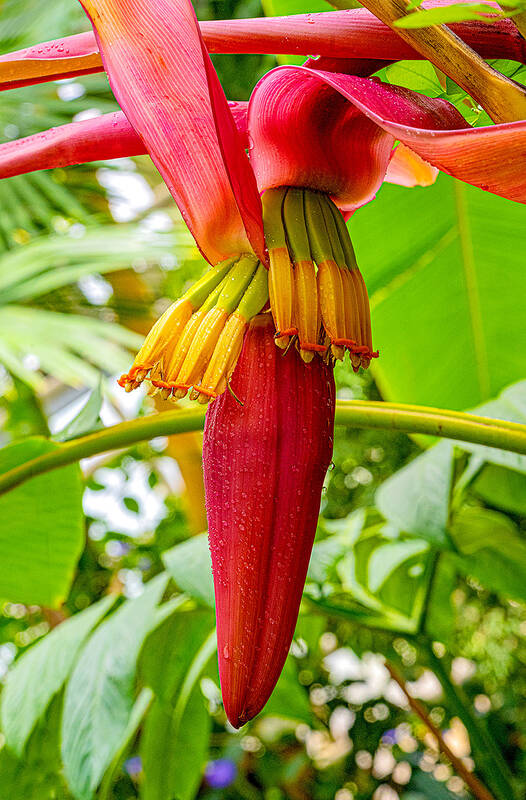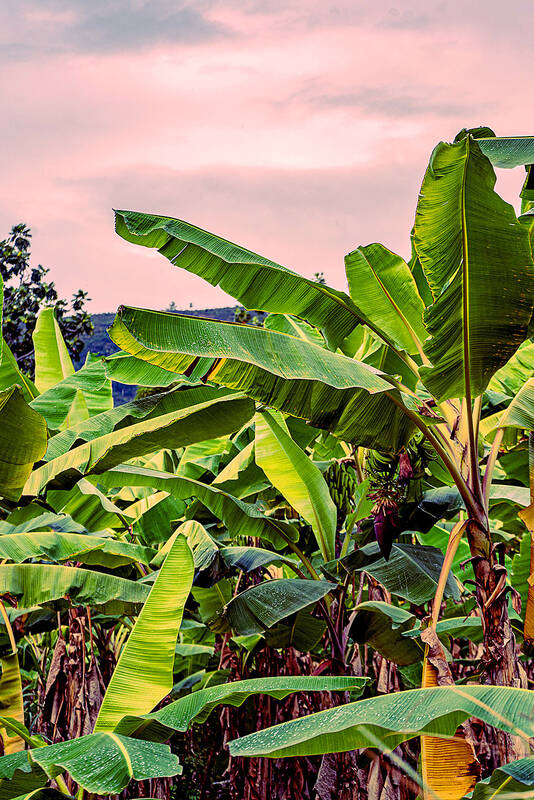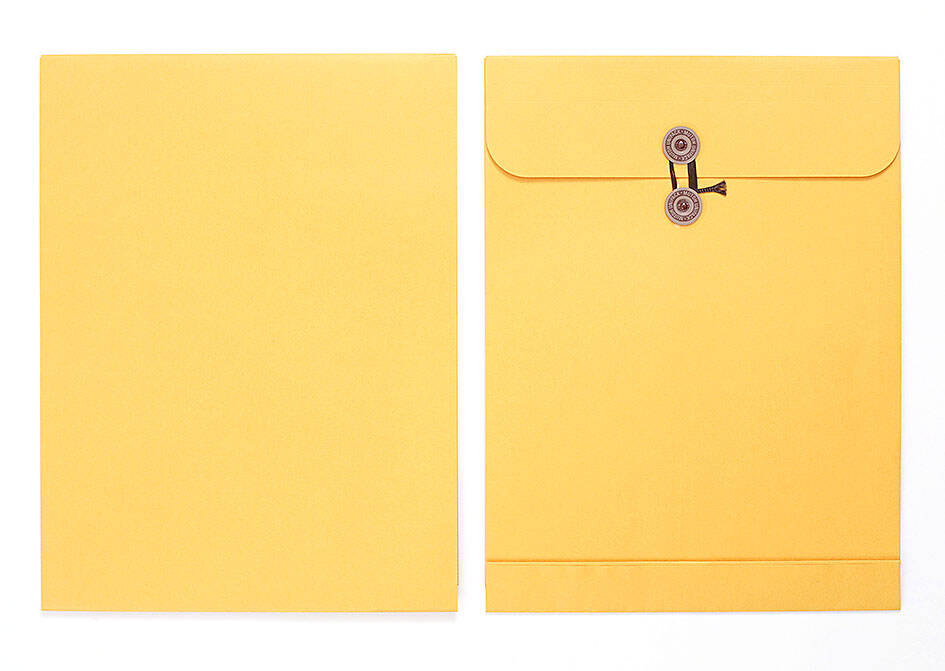Have you ever wondered why “Manila envelopes” carry that name? The answer lies in a plant native to the Philippines. Though a fruit-producing plant, abaca is most valued for its leaf stalks, which are __1__ to extract fibers known as “Manila hemp.” These fibers are known for their strength and resistance to saltwater.
Because of its __2__ in sea environments, Manila hemp has long been used to make Manila rope, a staple in the sailing and maritime industries for centuries. It withstands harsh ocean conditions without its flexibility being __3__. Manila rope doesn’t break down easily when exposed to seawater, making it a reliable choice for marine applications. This combination of toughness and flexibility makes Manila hemp a highly __4__ material for ship lines and fishing nets.
But how did Manila hemp come to be used for making envelopes? In the 1830s, American stationery manufacturers faced a __5__ of cotton and needed an alternative fiber for paper production. They turned to Manila hemp by repurposing old maritime ropes into paper. This __6__ led to the creation of Manila envelopes. Heavier and more like cardboard, these early products were often __7__ in half to make a folder. Their water-resistant nature made them ideal for protecting important documents from __8__. They also featured a distinctive golden hue, which came directly from the yellow-brown color of the original fibers.

Photos: AdobeStock I 照片:AdobeStock
Over time, the use of Manila hemp in envelope production __9__, largely due to the availability of cheaper materials. Though today’s so-called Manila envelopes rarely contain the fiber, they still retain the __10__ golden color of their predecessors. Manila hemp’s legacy is evident in the products that bear its name, reflecting its historical significance and the enduring qualities that once made it indispensable to many people around the world. Its story doesn’t end there, though. Some eco-conscious brands are now revisiting the use of Manila hemp in sustainable packaging.
你可曾想過,為什麼文件袋叫馬尼拉文件袋?(編按:也有人稱之為馬尼拉信封)答案就在一種原產於菲律賓的植物。雖然馬尼拉麻蕉是一種可結果植物,但最有價值的還是它的葉柄,葉柄被採收來提取稱為馬尼拉麻(編按:雖馬尼拉麻名字中有「麻」字,但與麻類植物沒有關係)的纖維。這些纖維以其強度和耐鹽水性而聞名。
由於馬尼拉麻在海洋環境中的耐用性,長久以來被用於製造馬尼拉繩索,這是航海業和海事產業幾百年來主要使用的產品。它能承受惡劣的海洋環境,又不損害其彈性。馬尼拉繩索暴露於海水時不易分解,使其成為海洋應用的可靠選擇。這種韌性和彈性的結合使得馬尼拉麻成為一種非常適合製造船纜和漁網的材料。

Photos: AdobeStock I 照片:AdobeStock
但是馬尼拉麻是怎麼開始被用來製作文件袋的呢?1830 年代,美國文具製造商面臨棉花短缺,需要一種替代纖維來造紙。他們透過將老舊的航海繩索再製成紙張,來開始使用馬尼拉麻。這項創新促成了馬尼拉文件袋的誕生。這些早期的產品較重、較像硬紙板,通常會被對折以製成文件夾。它們的防水特性使其成為保護重要文件不受潮的理想選擇。它們還呈現出獨特的金黃色調,這直接源自原始纖維的黃棕色。
隨著時間的推移,在文件袋生產中,馬尼拉麻的使用逐漸減少,這主要是因為有更便宜的材料可用。雖然現今所謂的馬尼拉文件袋很少含有這種纖維,但它們仍然保留著之前文件袋特有的金黃色。馬尼拉麻遺留的影響力透過以其命名的產品得以彰顯,反映了它的歷史意義和曾使它對世界各地許多人而言不可或缺的耐久特質。但它的故事並未就此結束。一些具有環保意識的品牌現正重新審視能否將馬尼拉麻應用在永續包裝中。
What Did You Learn?

Photos: AdobeStock I 照片:AdobeStock
(A) shortage (B) bent (C) suitable (D) declined
(E) durability (F) moisture (G) harvested
(H) innovation (I) characteristic (J) compromised
答案:1. G 2. E 3. J 4. C 5. A
6. H 7. B 8. F 9. D 10. I
Words in Use
1. extract vt. 提取,萃取
Scientists can extract oil from plants to make natural products.
科學家可以從植物中提取油來製造天然產品。
2. resistance n. 抵抗力(其後常與介詞to並用)
resistant suffix (形容詞詞尾)防∕抗……的
This crop shows strong resistance to disease.
這種作物對疾病具有強大的抵抗力。
These crops are drought-resistant and survive in dry areas.
這些作物能抗旱,可在乾燥地區生長。
3. harsh a. (環境)惡劣∕嚴峻的
The desert has a harsh climate with extreme temperatures.
沙漠氣候嚴峻、氣溫極端。
4. flexibility n. 彈性,韌性
Because of its flexibility, the material can be shaped into various forms.
由於其韌性,這項材料可以塑造成各種形狀。
5. application n. 應用,運用
This product has many industrial applications.
這個產品有多種工業用途。
Practical Phrases
1. lie in. . . 在於……
The beauty of this artwork lies in its simplicity.
這件藝術品的美在於它的簡潔。
2. be native to + 地方 原生於……
Koalas are native to Australia.
無尾熊的原生地是澳洲。
3. break down 分解
Organic matter will eventually break down in the soil.
有機物質最終會在土壤中分解。
4. be exposed to sth 暴露於……之中
Construction workers are often exposed to loud noise and dust.
建築工人經常暴露於大聲的噪音和塵土之中。
5. turn to sth 開始使用∕改用……
The firm decided to turn to renewable energy sources to reduce its carbon footprint.
該公司決定改用再生能源以減少碳足跡。
從船纜到文件守護者 馬尼拉麻蕉的故事

★ Bilingual Story is a fictionalized account. 雙語故事部分內容純屬虛構。 “Get in. It’s pouring.” She slid into the back seat, drenched and silent. “Tissues?” the driver asked. “No, thank you,” she said. Water beaded off her hair, ran from her coat, and made a small lake on the vinyl. She kept her head down, long black strands clinging to her face. “Where to?” She gave an address. “Funeral?” he asked as they slipped into the Xinhai Tunnel, rain fading to a hollow drum. She glanced up, puzzled. “No. Why?” “Crematorium’s about the only thing here.” He caught her eyes in the mirror.

Have you ever dreamed of hiking Taiwan’s majestic Mt. Jade or visiting Peru’s breathtaking Machu Picchu? These adventures sound amazing, but there’s something you should know about first: “altitude sickness.” This condition strikes when you climb to a higher elevation too quickly. The higher you go, the thinner the air becomes, making it harder for your body to absorb oxygen. The symptoms usually begin within hours of reaching high altitudes — about 2,500 meters or higher. You might experience headaches, dizziness, nausea, shortness of breath, or extreme fatigue. These symptoms can last for several days. The severity of altitude sickness varies

Week 24 詞法—名詞 1. 人們一致稱讚他。 ˇ People praised him unanimously. χ Peoples praised him unanimously. 註:people 作「人們」(= men and women)解時,是單數形式,作複數用。peoples 是「多個民族」、「各國人民」,不是「多數人」,如 the peoples of Asia(亞洲各民族、亞洲人民)。 2. 她為他做了一條新褲子。 ˇ She made him a new pair of trousers. χ She made him a new trousers. 註:scissors 和 trousers 等名詞習慣用複數形式。「一把剪刀」或「一條褲子」正統說法為 a pair of scissors 或 a pair of trousers。 3. 我們提前兩年完成了第二個五年計劃的主要目標。 ˇ We fulfilled the major objectives of the Second Five-Year Plan two years ahead. χ We fulfilled the major objectives of the Second Five-Years Plan two years ahead. 註:five-year 作為一個複合形容詞,year 不用複數。又如 a twelve-year-old boy、a five-dollar note、a one-hundred-meter race 等,也是一樣。 4. 他們決定買一輛新車。 ˇ They have made up their minds to buy a new car. χ

Continued from yesterday(延續自昨日) https://www.taipeitimes.com/News/lang Interestingly, one of the words Collins Dictionary discarded was selected by Oxford University Press (OUP) for its own Word of the Year. On its Web site, the publishing house of the University of Oxford stated it had conducted a public poll in which over 37,000 people participated. The voters, along with OUP’s language experts, settled on the term “brain rot.” One main reason for the decision was the vast amount of interest in the noun during 2023 and 2024, with its usage increasing by 230 percent. In fact, brain rot is not a new term by any